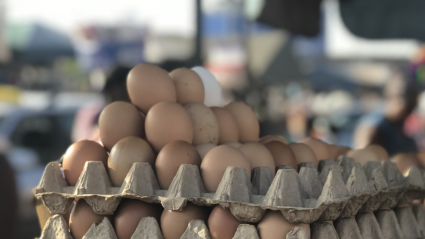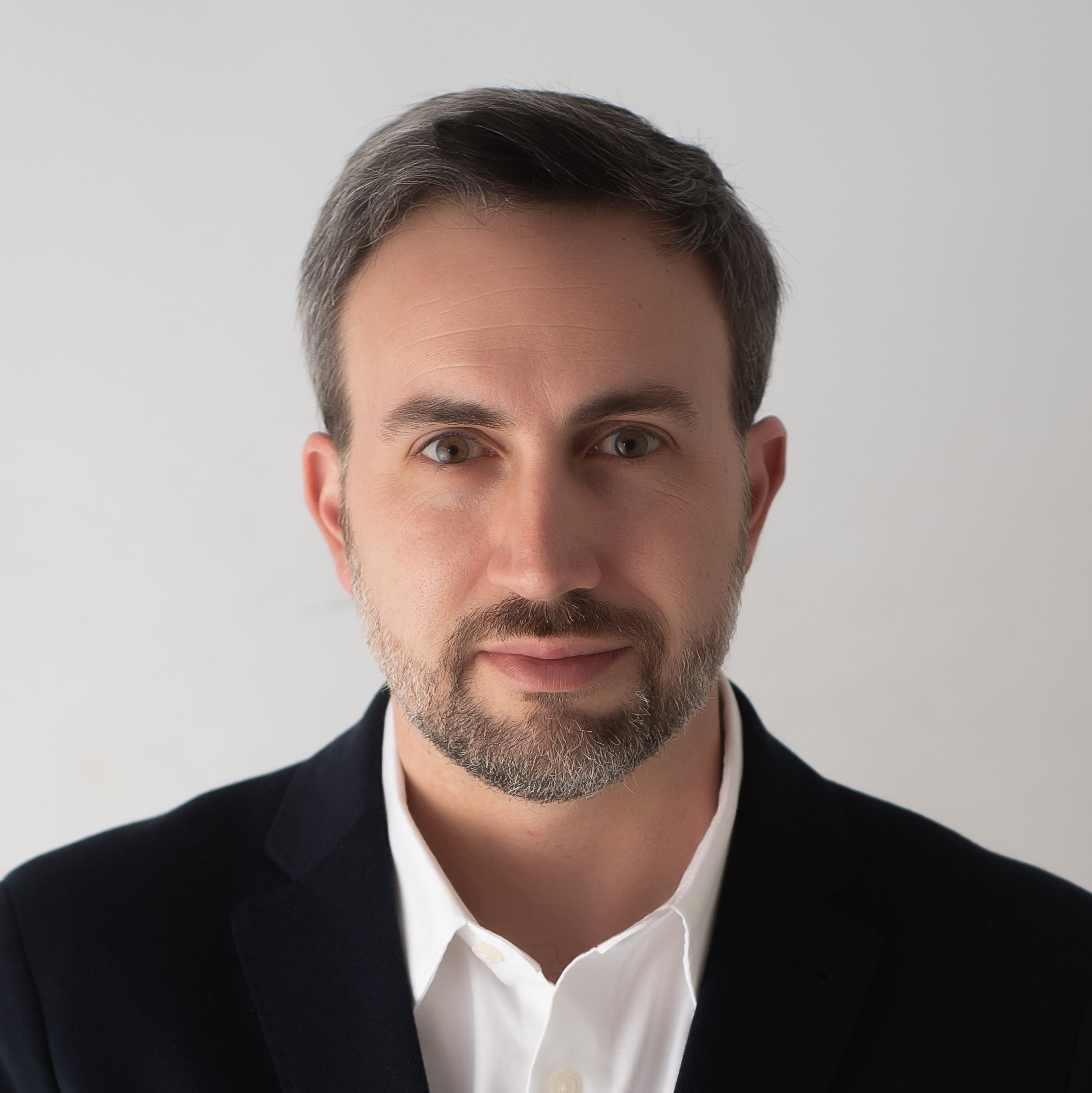
Key Takeaways
Below are a few of the main takeaways from COVID-19 Africa Watch’s conversation with Ladé Araba, Managing Director for Africa at Convergence, a global network that works to advance blended finance solutions through generating proprietary data and market intelligence; helping investors to understand better how blended finance works and how they can participate; and providing grants for early stage innovative blended finance vehicles that have the potential for scale and replication.
-
In recent years, blended finance, the use of development and philanthropic finance to catalyze increased private investment, has mobilized over US$140 billion in investment towards sustainable development. And it will likely be a key tool in the toolkit for pandemic rebuilding.
-
One early and notable use case is vaccine distribution. Through blended finance mechanisms, GAVI, the Vaccine Alliance, is creating a global risk-sharing mechanism for pooled procurement of the vaccine called COVAX. The mechanism guarantees an advance market for the sale of these vaccines, but also ensures that they are affordable for populations in developing countries.
-
Blended finance will also play an important role in shoring up government fiscal capacity, given an increased demand for concessional capital at a time when time investors are seeking greater credit enhancement in order to invest in African countries. That said, development partners must think about applying their resources strategically (avoiding for instance requiring excessively high volumes of first loss protection or over-collateralizing transactions, unless that is really needed) in order to avoid distorting the market.
-
Traditionally, blended finance has supported transactions in the energy and financial services sectors, due to their clear and predictable cash flows. But since the onset of the pandemic, the health sector has become increasingly of interest, and now comprises about 19% of Convergence’s database of fundraising transactions.
-
In 2021, developing countries have a lot of work to do to recover from the pandemic and need to better position themselves to weather the next global shock. Governments need to take a long-term view, which means investing limited public funds to catalyze private investment, build resilient systems, and considerably strengthen both physical and social infrastructure.
The interview was conducted by Obiageri Christiana Ndukwe, an IFC-Milken Institute Capital Market Scholar from the Central Bank of Nigeria. A transcript is available below.
Transcript
Interviewer
Hello, I am Obiageri Christiana Ndukwe, an IFC-Milken Institute Capital Market Fellow at the Central Bank of Nigeria. I am excited to have today here at COVID-19 Africa Watch, Ladé Araba. Ladé is Managing Director for Africa at Convergence, the global network for blended finance. Ladé, welcome to COVID-19 Africa Watch.
Ladé Araba
Thank you so much, Obi. It’s a pleasure for me to be here, and I’m really thankful to the Milken Institute for extending the invitation.
Interviewer
You’re welcome. Let me quickly jump in. Talking about the coronavirus pandemic, there has been tremendous progress in testing, treatment, and vaccines. What role is blended finance playing in terms of advancing these responses to the COVID-19 pandemic, including when it comes to plans for vaccine distribution in developing countries?
Ladé Araba
That’s a great question, Obi. In past situations we’ve seen donors and governments effectively serve as outcome funders, both for the sale, as well as the distribution of vaccines to developing countries, often also requiring that a certain number of people actually receive the vaccinations, and this is verified through an independent third party. We’ve also seen similar arrangements where the price of the vaccine is effectively subsidized by the donors to guarantee that the pharmaceutical companies are able to achieve whatever return they were anticipating, but without burdening developing countries with expensive vaccines, so effectively helping to keep them affordable for these countries.
In the case of the COVID-19 pandemic, we’re seeing similar types of structures be deployed through entities like GAVI, which is the global alliance for vaccinations, where through the COVAX initiative, they are guaranteeing an advance market for the sale of these vaccines, but also ensuring that they are affordable for populations in developing countries. Effectively, these are blended finance structures, and I think we’re going to continue to see this scale and level of activity. We’ve also seen funding being provided by the Gates Foundation and a few others, basically towards these types of initiatives.
Interviewer
Let’s talk about blended finance. Blended finance has gained increased traction over the years, mobilizing over USD $141 billion in capital towards sustainable development in developing countries. How does Convergence help in crowding-in private sector funds towards a development outcome, especially for those frontier markets and fragile states that otherwise would not have access?
Ladé Araba
Another great question, Obi. There are a number of things that we do, and I’m going to classify them into three categories.
The first is generating proprietary data, as well as market intelligence, but also deal flow to really mobilize private investment at scale. So we write reports and case studies on specific transactions that effectively explain the mechanics behind the blended finance structure. This makes clear how parties are able to leverage concessional capital to de-risk these transactions so that their risk return profiles appeal to investors, and describes the various instruments that are utilized for risk mitigation.
We also speak about the challenges that are faced when you’re putting these deals together and how they have been overcome in the past through similar transactions. And also very importantly, who is actually participating. So if you were thinking about raising capital, for instance, it would be helpful to have a list of comparables that you can look at and see who is actively placing capital into these transactions. We’re effectively helping investors to understand better how blended finance works and how they can participate, but also certainly surveying the sell side with project sponsors, developers, and even entrepreneurs or financial intermediaries who are advising them so that they can learn and adapt what has worked in the past to structure their own deals. Convergence also manages the largest database of closed transactions. We are currently pushing 600 of these deals, where again, we explain the structures and, serve both sides of the table in better deal making.
And finally, we provide grants for early stage innovative blended finance vehicles that have the potential for scale and replication. And what we’re trying to solve here is the lack of a deep pipeline of bankable projects or investible opportunities, especially in nascent sectors or difficult jurisdictions, or even sectors like healthcare, which are historically seen as very socially- and impact-oriented and are funded by the public sector. But given the large funding gap that we see in various countries, there is going to be a need to commercialize these sectors in a way that greater volumes of financing is actually coming in from the private sector.
Interviewer
Thank you, Ladé. You just mentioned the funding gap that we have in a lot of African countries, and mitigating the risk in transactions so that investors actually can invest in these countries. Looking at the pandemic now, and the considerable impact it’s having on the fiscal space for many African countries, would you say there’s been an increased need for concessional debt or equity guarantees, and how is this affecting the price and the mobilization of private capital?
Ladé Araba
There certainly has been increased need. And we have seen it just even in the past few months, since the pandemic really hit, when the demand for concessional capital in general has increased considerably, but also when investors are seeking greater levels and layers of first loss protection, guarantees, and other forms of credit enhancement.
“The concessional capital providers, especially the donors, need to think about how they are applying their resources strategically in order to avoid market distortion.”
Now, naturally, these instruments do lower the overall cost of capital, and they do help to improve the risk return profile and the terms of these transactions so that they match the risk appetite of investors. However, I do want to stress that it’s an art, not a science, but we do need to think about the concept of minimum concessionality and additionality, because it’s quite easy to distort markets by requiring greater volumes of first loss protection or effectively over-collateralizing these transactions and deploying an excess of limited public funds where they really are not needed. So I think even as we continue to see this demand grow, the concessional capital providers, especially the donors, need to think about how they are applying their resources strategically in order to avoid market distortion.
Interviewer
Thank you. As Managing Director for Africa, given your wide experience, what would you say are the key priority areas in Africa or in developing countries, and how is Convergence really helping donors specifically to address the crisis?
Ladé Araba
Our data shows that energy and financial services have historically been those two sectors where there’s been a lot of activity. The revenue lines are quite clear, so it makes sense that investors are comfortable participating in those sectors. But even with that, the past few months have shown us that we do need to think about commercializing and investing in healthcare in earnest. And in fact, if you look at Convergence’s database of fundraising transactions, these are ones that are still raising capital. Health represents about 19% of that portfolio, which historically it didn’t; globally, health only accounted for maybe 3% of transactions that had raised finance through blended finance.
If I was to project into the future, we are going to see a higher number of health-related transactions that are raising capital, that are being implemented through a variety of instruments and interesting structures. And even at Convergence, in the last couple of years, through our design funding window – the grant window – we’ve supported initiatives that are leveraging blended finance strategically towards health care. For instance, in Kenya we supported an initiative that applies asset-backed financing to increase the volume of capital available to pharmaceutical distribution companies within the country.
Interviewer
Quite interesting. Given such a rich database, what policy advice would you have for developing countries in the area of capacity building and attracting the most needed investment in order to adequately shape the future post-COVID-19?
Ladé Araba
I’m going to be a little provocative and say that, as a starting point, developing countries or emerging markets have to do the hard work.
There’s a number of deep policy reforms that are required in a number of countries. That work needs to be done. Countries need to ensure that they’re also strengthening their investment climates. They need to create a greater transparency and an enabling environment for business to operate, allowing the markets to operate freely. They also need to have a long-term view. I think sometimes, even within this pandemic, the immediate response is reactionary, where we have to provide humanitarian assistance. It’s all urgent, it’s all a short-term focus. But what happens post-pandemic? Are we going to return to crisis situations or to the difficult environments in which many of these countries find themselves?
I think having a long-term view means that governments are thinking about where to invest limited public funds, to catalyze private investment, to really build systems, infrastructure, and everything that is required to make these countries resilient and anti-fragile so that when the next pandemic or other external shock event happens, they are better prepared to absorb that shock and to survive it. So investments are required all around.
“This pandemic has highlighted and underscored the critical importance of investing in social infrastructure. Health, water, and sanitation, even education, have much broader ripple effects across the economy, and unfortunately, they had not received as much attention or financing and investment as other sectors.”
And the last point that I’ll make is this pandemic has highlighted and underscored the critical importance of investing in social infrastructure. Health, water, and sanitation, even education, have much broader ripple effects across the economy and unfortunately, they had not received as much attention or financing and investment as other sectors. I think it’s quite critical at this juncture for countries to really pay attention to these sectors because health is wealth, as they say. But you really can’t build a thriving economy if you don’t have these building blocks.
Interviewer
Very insightful, Ladé. Health, education, these are all critical sectors and building a very resilient economy is very important. Thank you very much, Ladé. You are indeed a source of inspiration to many. What parting words would you like to share with your women, aspiring to be leaders and looking to walk in your footsteps?
Ladé Araba
Thank you, Obi, that’s very kind of you. What I would say is, first and foremost, believe in yourself and always challenge yourself to do difficult things. I think we have the propensity to shy away from or run from things that are very challenging, but that’s really where you grow and where you can prove yourself and aspire to even bigger things. And I would also say, volunteer for the difficult assignments, learn to ask lots of questions, seek guidance, and just be an authentic leader wherever you are.



